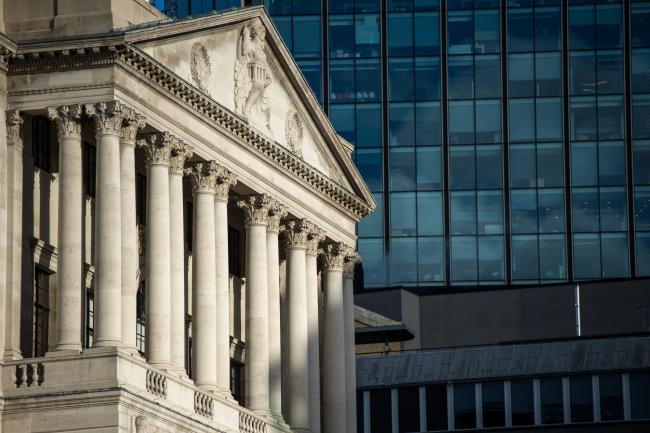(Bloomberg) -- Investors betting the Bank of England will raise interest rates again as soon as May got the boost they were waiting for.
BOE Chief Economist Andy Haldane’s comment on Wednesday that the long-awaited pickup in wages “is starting to take root” pushed up the market-implied probability of a rate increase in less than three months from now. The odds of a May hike as priced by money markets now stand at 84 percent, up from 78 percent before Haldane’s comments. It was just 51 percent before the central bank’s Feb. 8 meeting. Even weaker-than-expected U.K. growth data on Thursday failed to budge money-market pricing.
“There’s very much a presumption that if the BOE is right on wage expectation, that will have supportive elements for rates and ultimately for sterling,” said Jeremy Stretch, head of Group-of-10 currency strategy at Canadian Imperial Bank of Commerce.
The pickup in rate-increase expectations comes at a time when the U.K. and the European Union are still wrangling over Brexit negotiations and data in Britain is yet to signal solid growth. The U.K. economy expanded less than previously estimated in the fourth quarter, with gross domestic product rising 0.4 percent, compared with an initial estimate of 0.5 percent, the Office for National Statistics said on Thursday.
The pound fell 0.2 percent to $1.3894, taking losses over the past five days to 1.5 percent, its longest losing streak in almost a year. Sterling weakened 0.3 percent to 88.50 pence per euro. Benchmark gilts were little changed with the 10-year yield at 1.55 percent.
Even amid hawkish BOE signals, the room for sterling to gain further is limited by Brexit, according to CIBC’s Stretch.
U.K. Prime Minister Theresa May is inviting 11 of her most powerful colleagues in an effort to iron out differences and force them to agree what kind of Brexit they want. Deep divisions within her own party makes it even more challenging for her to set out what Britain expects out of its future relationship with the EU, ahead of trade talks due next month.
“If you’re an international investor trying to decide whether you want to be long sterling or not, the news on Brexit negotiations are going to oscillate in the background,” Stretch said. “All in all, it is becoming difficult for sterling to break through all that noise.”
(Updates prices throughout, adds GDP data from second paragraph.)
